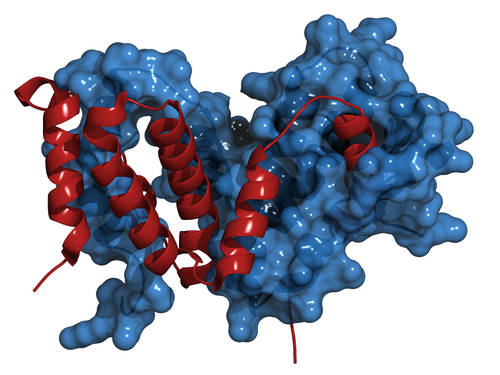Basel, Switzerland based biopharmaceuticals firm Mundipharma EDO GmbH (Early Development in Oncology) reports that the United States Food and Drug Administration (FDA) has accepted the company’s Investigational New Drug Application (IND) for its candidate EDO-S101 — a first in class fusion molecule for treating relapsed/refractory haematologic malignancies and solid tumours.
The EDO-S101 fusion molecule combines the DNA-damaging effect of bendamustine with the pan-histone deacetylase inhibitor (HDACi) vorinostat, with the goal of increasing efficacy of the alkylator through the HDACi-mediated chromatin relaxation.
According to a Mundipharma EDO release, it is anticipated that EDO-S101 may have significant activity in various haematological malignancies and solid tumours and may have the potential to break through resistance towards other conventional chemotherapy.
The release notes that alkylating agents have demonstrated strong activity in a wide range of cancers and have been a mainstay of anti-tumour therapy for decades. In several malignancies alkylating agents are still considered the benchmark standard of care, and bendamustine, the latest introduction, has demonstrated good efficacy and tolerability in a number of haematological malignancies.
Mundipharma EDO Managing Director Thomas Mehrling, MD, Ph.D observes that this approval is a significant milestone for the company, noting “With this IND approval, Mundipharma EDO has transitioned from a pre-clinical company to a company in clinical stage in about two years. This successful IND represents the culmination of a focused and rigorous development program aimed at providing proof of efficacy and safety in animals to support human clinical trials of EDO-S101. Preparations are underway to start the first in human clinical trial in patients with relapsed-refractory haematologic malignances in quarter 3 2015.”
The primary goal of this first clinical trial is to evaluate EDO-S101’s safety, tolerability, of and pharmacokinetic profile — information that will be used to establish EDO-S101 dosages to be used in subsequent Phase 1b and Phase 2 trials. A further objective will be to evaluate gene expression profiles correlated with response or resistance to EDO-S101 in order to better characterize future applications for the drug.
Once the dose escalation part of the first in human study has been completed, a phase 1 trial in solid tumors will be developed.
According to the American Society of Hematology, hematological malignancies or blood cancers affect production and function of blood cells. Most of these cancers start in the bone marrow where blood is produced. Stem cells in bone marrow mature and develop into three types of blood cells: red blood cells, white blood cells, or platelets. In most blood cancers, the normal blood cell development process is interrupted by uncontrolled growth of an abnormal type of blood cell. These abnormal blood cells, or cancerous cells, prevent blood from performing many of its functions, like fighting off infections or preventing serious bleeding.
Despite recent improvements in treatment methods for hematological malignancies, patients who experience relapses or refractory disease continue to pose a clinical challenge for clinicians due to limited effective treatment options, and almost all patients with multiple myeloma (MM) who survive initial treatment will eventually relapse and require further therapy, with an average patient survival rate of up to 5 years.
Relapse in Hodgkins Lymphoma also occurs in a small proportion of patients; approximately five percent to eight percent of those presenting with limited stage disease, and 15 percent to 20 percent of those with advanced stage disease.
A Mundipharma EDO release notes that prognosis in peripheral T-cell lymphoma (PTCL) is very poor, with response rates to available treatments falling between 25 and 27 percent. Patients experience repeated treatment failures until either drug resistance sets in or death intervenes, with the five-year survival rate averaging 20-30 percent.
Patients with acute myeloid leukemia (AML) fail to achieve remission, or relapse because of chemotherapy drug resistance that can either be present at the time of diagnosis or induced by treatment. The majority of relapses occur within two years of initial treatment and only 24 percent of patients survive 5 years or more after diagnosis.
Mundipharma EDO GmbH (EDO) is developing early stage assets in oncology for the Mundipharma network of independent associated companies and currently investigating a new chemotherapy agent for haematological malignancies and solid tumours, and an antibody-drug conjugate for the treatment of ovarian cancer.
For further information on Mundipharma’s network of independent associated companies visit:
http://www.mundipharma.com
More information on Mundipharma EDO can be found at: http://www.mundipharma-edo.com
Sources:
Mundipharma EDO GmbH
American Society of Hematology
Image Credits
Mundipharma EDO GmbH


